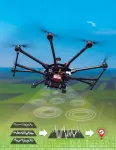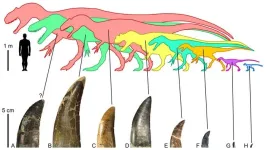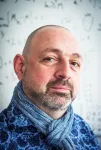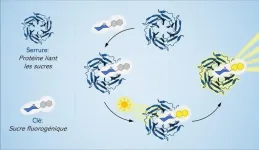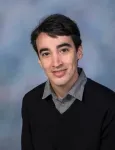Through this experiment, Icahn School of Medicine at Mount Sinai researchers aim to gain a better understanding of how cardiac muscle cells, or cardiomyocytes, adapt to extreme biological stresses, and how microgravity and other features of space travel impact cardiomyocyte function. The findings will help scientists find better ways to study heart cell biology in future space experiments.
Understanding the capabilities and limitations of such heart cells to survive is not only important for the health of astronauts, but also a first step toward future efforts in space-based tissue engineering, organoid fabrication, and bioprinting, which are all important players in the emerging economy of biomanufacturing in the microgravity environment known as low Earth orbit.
Mount Sinai is partnering with Space Tango to run this experiment. Space Tango provides access to microgravity for research and development purposes on the ISS. Space Tango will manage Mount Sinai’s tissues, which will be sealed in individual small-scale experimental containers called cryovials and placed in a larger containment unit known as a CubeLab. These one-milliliter vials also contain cell culture media and additives to help keep the cardiac muscle cells alive for an extended period, with some beating and some chemically arrested to reduce their metabolism and see if their survival is impacted. Once the cargo capsule carrying the research arrives at the ISS, astronauts will place the CubeLab in a dedicated Space Tango facility. After approximately 30 days, astronauts will return the samples to Earth, and Mount Sinai researchers will begin their analyses.
Astronauts commonly experience signs of heart failure during space missions due to extreme conditions that seem to accelerate the aging process. Their symptoms mimic what happens to people on Earth as they age or are bedridden, but at an accelerated pace and a younger age. Results from this experiment could help researchers identify new ways to protect the heart health of astronauts while in space, and to develop new therapies for cardiovascular disease among aging populations on Earth.
“This project will help us understand the impact of microgravity and space flight on engineered human heart muscle cells and micro-tissues, and will test for the first time how these highly active beating heart muscle cells adapt to a month of exposure to such extreme conditions. One of the exciting aspects of the experiment is that the samples will be shipped to Mount Sinai alive after they return to Earth, so we can test how the tissues perform when they come back,” explains Kevin Costa, PhD, the project leader and an Associate Professor of Medicine (Cardiology) at Icahn Mount Sinai. “As we gain a better understanding of how these engineered cardiac cells and tissues function, we can find new ways to help protect astronauts so they can stay in space longer to complete more in-depth exploratory missions. This will also provide clues about how to better protect the hearts of people on Earth from the detrimental effects of aging and inactivity.”
Mount Sinai generated these human heart muscle cell samples from induced pluripotent stem cells from a healthy adult donor. The cells are cultured in three distinct configurations: 2D monolayers, 3D spheroids, and 3D elongated cardiac tissue formats. This will test whether the 3D culture conditions, which are more physiologic than 2D cultures, offer a biological advantage for the heart cells.
“The goal of the experiment is to assess the ability for our engineered cardiac cells and micro-tissues to survive in a sealed environment in microgravity for 30 days, and to compare the survival characteristics to equivalent samples cultured in our laboratory at Mount Sinai’s Cardiovascular Research Institute. We are testing to see if microgravity will alter the cardiomyocyte ability to adapt to this enclosed environment, and to see if there are differences in the biology of the cells that are returned from the ISS,” adds Dr. Costa. “We hope to learn more about the effects of microgravity on human heart cell and tissue biology, and to explore the possibility of performing such studies in a sealed environment that does not require the usual fluidic exchange systems that significantly add to the complexity of doing cell biology in space.”
“As the cost of space flight continues to drop, and more and more people begin to live and work in space, it will be important to understand how that environment impacts their bodies. Miniaturized bioengineered tissues are great tools for learning about this while minimizing launch costs. We're excited to be able to apply our tools towards the new field of space medicine, and to use microgravity as a model of human aging,” says researcher David Sachs, PhD, Assistant Professor of Genetics and Genomic Sciences at Icahn Mount Sinai.
About the Icahn School of Medicine at Mount Sinai
The Icahn School of Medicine at Mount Sinai is internationally renowned for its outstanding research, educational, and clinical care programs. It is the sole academic partner for the eight- member hospitals* of the Mount Sinai Health System, one of the largest academic health systems in the United States, providing care to a large and diverse patient population.
Ranked 14th nationwide in National Institutes of Health (NIH) funding and among the 99th percentile in research dollars per investigator according to the Association of American Medical Colleges, Icahn Mount Sinai has a talented, productive, and successful faculty. More than 3,000 full-time scientists, educators, and clinicians work within and across 44 academic departments and 36 multidisciplinary institutes, a structure that facilitates tremendous collaboration and synergy. Our emphasis on translational research and therapeutics is evident in such diverse areas as genomics/big data, virology, neuroscience, cardiology, geriatrics, as well as gastrointestinal and liver diseases.
Icahn Mount Sinai offers highly competitive MD, PhD, and Master’s degree programs, with current enrollment of approximately 1,300 students. It has the largest graduate medical education program in the country, with more than 2,000 clinical residents and fellows training throughout the Health System. In addition, more than 550 postdoctoral research fellows are in training within the Health System.
A culture of innovation and discovery permeates every Icahn Mount Sinai program. Mount Sinai’s technology transfer office, one of the largest in the country, partners with faculty and trainees to pursue optimal commercialization of intellectual property to ensure that Mount Sinai discoveries and innovations translate into healthcare products and services that benefit the public.
Icahn Mount Sinai’s commitment to breakthrough science and clinical care is enhanced by academic affiliations that supplement and complement the School’s programs.
Through the Mount Sinai Innovation Partners (MSIP), the Health System facilitates the real-world application and commercialization of medical breakthroughs made at Mount Sinai. Additionally, MSIP develops research partnerships with industry leaders such as Merck & Co., AstraZeneca, Novo Nordisk, and others.
The Icahn School of Medicine at Mount Sinai is located in New York City on the border between the Upper East Side and East Harlem, and classroom teaching takes place on a campus facing Central Park. Icahn Mount Sinai’s location offers many opportunities to interact with and care for diverse communities. Learning extends well beyond the borders of our physical campus, to the eight hospitals of the Mount Sinai Health System, our academic affiliates, and globally.
-------------------------------------------------------
* Mount Sinai Health System member hospitals: The Mount Sinai Hospital; Mount Sinai Beth Israel; Mount Sinai Brooklyn; Mount Sinai Morningside; Mount Sinai Queens; Mount Sinai South Nassau; Mount Sinai West; and New York Eye and Ear Infirmary of Mount Sinai.
About Space Tango
Space Tango is an industry leader in automated systems in the pursuit of health and technology manufacturing in space. Since 2017 Space Tango has provided facilities to support iterative R&D and manufacturing in microgravity environments. Through an integrated and intuitive approach, Space Tango works alongside its diverse partner base to embrace pathways to production. For more information, visit www.spacetango.com
END
